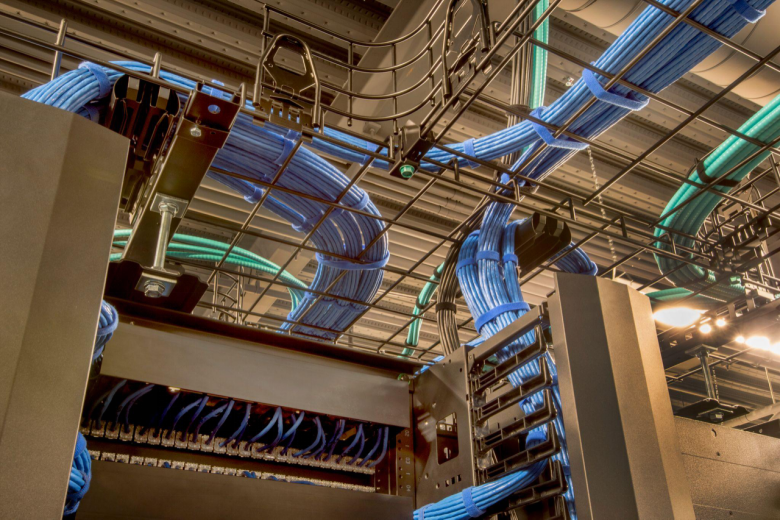
When it comes to finding the best network cable for your company or businesses, this task needs plenty of consideration and research. Both copper and fiber optics have their own distinct advantages and unique traits but when set in a direct comparison which is better? In order to find the right network cable for your company, consider the following below when executing and selecting your choice.
Fibre Optics
One of the industry go-tos when it comes to data cabling and it boasts many advantages as well. When compared to copper cabling, fibre optic cables are thinner, lighter and more durable. Since they are smaller in size, they are easier to install and take up less room in service ducts or conduits.
Fibre optic cables don’t radiate signals and are known for being difficult to tap, jam and radiofrequency. If the cable is tapped, it’s easy to monitor because the cable will leak light causing the entire system to fail. Fibre networks also enable to put all electronics and hardware in one central location, instead of having wiring closets with equipment throughout the building.
Another benefit of fibre cable is their reliable data transmission abilities. Fibre cables are completely immune to a variety of environmental factors like temperature changes, electromagnetic fluctuations and are even capable of being submerged in water. Because fibre optics cable cores are made of glass, which also acts as an insulator, no electric current can flow through. This means they don’t require electricity and are less susceptible to be a fire hazard.
Fibre optic cables have become one of the more popular mediums for both innovative cabling installations and upgrades, this can include backbone, horizontal and desktop applications. Fibre optic construction is one of the more convenient and cost effective methods available.
Another advantage of fibre optic is that light can travel much faster through fibre than copper. Although the cables won’t reach the speed of light, they are only 31% slower than the speed of light. FIbre cables have a great bandwidth as well, a standard performance of 60 terabits of data per second. There is very little data loss even over long distances.
Copper Cables
Now, although there are many advantages to choosing fibre optic there are also very solid reasons for choosing copper capable in certain circumstances. In the workplace some may consider fibre optic the obvious choice when it comes to bandwidth but it’s important to keep in mind most desktop computers are still mostly equipped with copper Network Interface Cards (NICs), if you were to outfit these computers with fibre optic compatible versions this would be an expensive and additional expense.
One significant advantage of copper cabling is that it can be configured with Power over Ethernet technology. This kind of technology allows for both data and power to be carried the same ethernet cable, on either the same wire or two different wires. Another advantage is that this technology is inexpensive to install as well.
If you choose to have power provided over the network (also called PoE) this allows for easy installation and distribution of network connections through the entire network setup. Since there is a central source of power, this means that copper cabling is reliable and can easily be controlled. PoE is often used to power security cameras, VoIP systems (Voice over IP phone systems), WiFi and Bluetooth devices.
Since copper is once of the most conductive material second to silver, it can be installed with less insulations which allows for more flexibility with its’ set up. It is also cheaper in network device connections. Another benefit is tat copper has a high corrosion resistance which can help reduce the risk of deterioration. This means in terms of connectivity, copper cabling provides a strong, reliable link that will last for years.
What solution is best for your business?
For businesses and companies in areas where fibre optic cable has previously been installed, this makes fibre seem like an ideal solution for network cabling needs. Fibre offers speed, reliability and affordability.
If you are in a more rural area, a copper based connection may be a practical option since it is common in many places.
In order to surmise what cabling infrastructure is best suited for your company will highly depend on your needs. Both options have unique advantages and benefits to them. If your are still contemplating which option is best, the best person to speak with is a professional network cabling company. These professionals will be able to assess your needs and help you execute the best cabling option for you.




